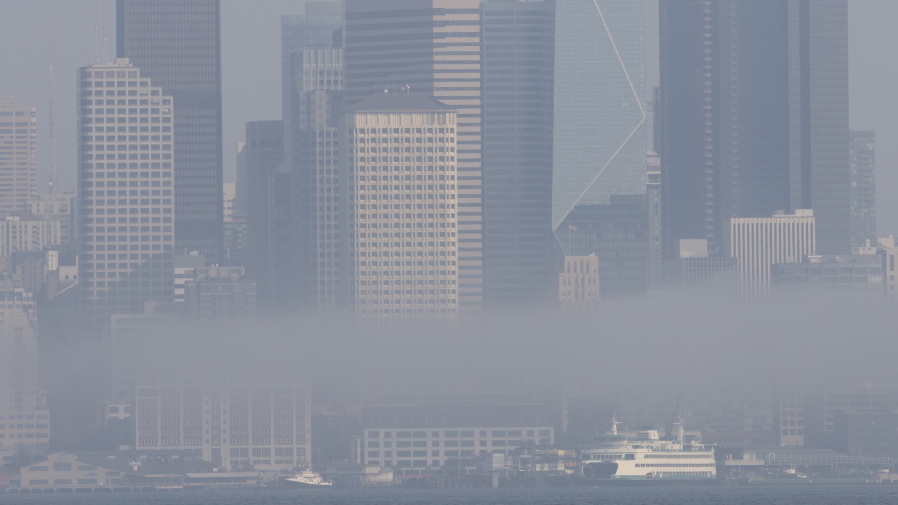SEATTLE — Rain and winds in the Seattle area are a welcome relief as they pushed out wildfire smoke that has clouded the air for weeks on end.
When Seattle recorded the world’s worst air quality last week, Washington reached another grim milestone as the duration of exposure to poor air quality hit a 10-year peak.
For the first time in at least a decade, the average number of days with moderate or worse air quality in Washington inched closer to a full month, according to data from the state Department of Ecology.
In Washington, the wildfire season typically runs from June to September and particularly affects the region east of the Cascades.
But this year, for the first time, a significant wildfire smoke event has extended into October in Western Washington, where the climate is milder and wetter, according to Susan Woodward, spokesperson for the Ecology Department.
The last time wildfire-smoke concerns extended into the fall was in 2012, though it remained east of the Cascades in drier, hotter parts of Central and Eastern Washington, particularly the Wenatchee area.
While other sources of air pollution such as vehicular exhaust fumes and industrial pollution may cause a moderate reading on the air-quality index, several days in the moderate range this summer were affected by wildfire smoke, Woodward said.
On average, between 2016 and 2020, Washington residents were exposed to 34 days of smoky air annually, compared to 22 days from 2009 to 2014, according to a 2021 analysis of federal satellite imagery by National Public Radio’s California Newsroom and Stanford University’s Environmental Change and Human Outcomes Lab.
The greatest exposure to hazardous air was recorded in 2015, when Washington wildfires — the worst in state history — were declared a federal emergency.
Though the state has recorded a prolonged exposure to poor air quality this year due to wildfire smoke, the intensity of the exposure is not as hazardous as it has been in previous years, Woodward said.
“By comparison, there have been no hazardous days in 2022,” she said.
A growing body of research on wildfire smoke shows that even short-term exposure has adverse effects on human health.
Particle pollution or fine particulate matter, the main component of wildfire smoke, is 10 to 30 times thinner than human hair. It can be inhaled deep into one’s lungs and enter the bloodstream. Such pollution poses the greatest threat to public health, according to the U.S. Environmental Protection Agency.
Exposure can cause eye or respiratory tract irritation or more serious health effects such as exacerbation of asthma, heart failure and premature death, the EPA said.



